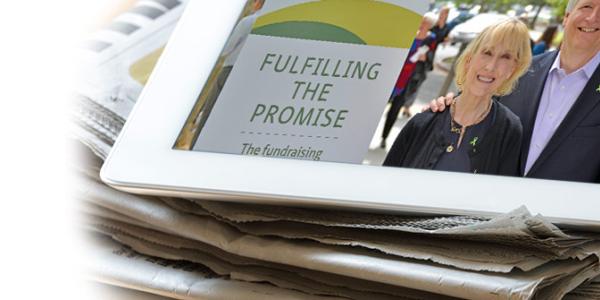
Mountain View, CA - June 17, 2009 - When dozens of families gather at El Camino Hospital's Neonatal Intensive Care Unit (NICU) on Saturday, June 27th, it will look a lot like any other summer reunion: children running, shouting and playing delightedly, while relaxed adults chat about the year's events. That, in itself, is something of a miracle.
These parents will be sharing the joy of seeing their premature babies grow and thrive after an unexpectedly rocky start. And, they'll be renewing bonds and friendships with the nurses and doctors whose efforts helped make that miracle possible.
For Wendy Tom-Dolores, acting clinical manager of the NICU and until recently Nursing Unit Coordinator, the NICU reunion is one of the things that makes her job worthwhile.
"We all feel very privileged to work with these little ones and their families," she says. "It's a very special bond that you form with these families, and when they come back, it's a thrill to see how they've grown. It's so rewarding to know that you've helped in some way to contribute to a happy, healthy outcome."
Mountain View residents Tom and Carolyn Cutler will be at this annual event with their son Drew, born last October--14 weeks early and weighing in at just 2 lbs.1 oz. After his Cesarean delivery, it was two and a half weeks before they could hold him, due to a lung infection and a host of other problems typical of "micro-preemies."
"He couldn't breathe on his own and had to be put on a ventilator," Carolyn says. "We couldn't even touch him for the first few days and then only lightly to avoid over-stimulating him. He struggled a lot harder than most babies--from day to day we didn't know what to expect."
Drew developed retinopathy, which fortunately resolved on its own, and sepsis, which required strong antibiotic treatment. They had to learn to take each new challenge one day at a time.
Fortunately, they were surrounded by supportive doctors and nurses. At one of the low points, a busy neonatologist sat down with them to field a long series of questions. A nurse helped them navigate the mountain of insurance paperwork generated by Drew's three-month hospital stay.
Other parents also provided support. A group met every few weeks, with NICU "graduates" returning to talk about transitional issues. Despite language and cultural barriers, everyone bonded by sharing their fears--and their gratitude--as their tiny infants overcame obstacle after obstacle.
Eight weeks after delivering, Carolyn was able to go back to work, and spend more time with the couple's other son, Ty, secure in the knowledge that Drew was surrounded by loving care. At each of their three daily visits, nurses would provide increasingly hopeful updates.
Today, Drew is "almost normal," says Carolyn. "He's a great little eater--and he's only about a month delayed now."
She and Tom look forward to sharing his progress with the NICU staff and nurses. "I'm so profoundly grateful for their skills and compassion," Carolyn says. "They had such incredible patience--and they seemed to know my question before I asked it. No matter how busy they were they took the time to help us understand and to coach us through each challenge."
Harvey and Stephanie Yamanaka also drew strength from the comfort and experience of the NICU staff. Their son Jonathan was born in February 2007, almost four months early. He fit into the palm of Harvey's hand, weighing just 1 lb. 13 oz. It would be 95 days before they could bring him home.
Jonathan's under-developed lungs proved the biggest challenge, requiring injections to keep them from collapsing, and an oscillator that pumped hundreds of tiny puffs of air to keep them inflated.
The Los Altos parents lived on the brink of disaster for weeks, thinking they might lose Jonathan at any time. They couldn't even touch him for two weeks; his paper-thin skin might have shredded. Yet as the tiny infant underwent two surgeries, one for his eyes and another for hernia, they remained hopeful.
"Even though he was so tiny, he looked better than I might have imagined," Harvey says. "When I saw him, it calmed me. My greatest concern was my wife, and helping her through this."
They appreciated the honest answers they received throughout Jonathan's struggles. "They knew how to comfort us and help us through everything, yet they were real with us, too, and didn't try to get our hopes up," Harvey says. "But the level of care was simply extraordinary. That gave us hope. The fact that he's doing so well now is a reflection of the care he received."
Today, 2-year-old Jonathan outweighs his sister Jennifer, born at full term just nine months ahead of him. "He still sees a lot of specialists for his lungs and eyes," says Harvey. "But when people meet him they would never even guess he was premature."
Over the three months, they got to know nearly all the medical staff at the NICU, and are looking forward to seeing them again at the reunion on the 27th. "Even now when we see one of the nurses or doctors at a grocery store, they remember us," says Harvey. "We're just so grateful to all of them."
"Going through this has given us a completely different perspective," Harvey says. "We place a lot of faith in God now. Things happen that are completely out of our control. We're just happy that Jonathan is alive."
"Technology can only take you so far," says Wendy Tom-Dolores. "We have state-of-the-art equipment and technology, but what families need just as much is caring and support as they struggle. We're by their side day after day. That's the kind of bond that can last a lifetime."